Curassows are large, ground-dwelling birds belonging to the Cracidae family. They are found primarily in tropical rainforests, with several species inhabiting the vast Amazon Basin. These birds are known for their striking plumage, distinctive head ornaments, and their importance in the ecosystem. Unfortunately, many curassow species are facing serious threats due to habitat destruction and hunting.
While there are several species of curassows, five notable ones stand out due to their habitat and unique features. Among these, three species inhabit the Amazon Basin, while two others are found in Central America and Colombia.
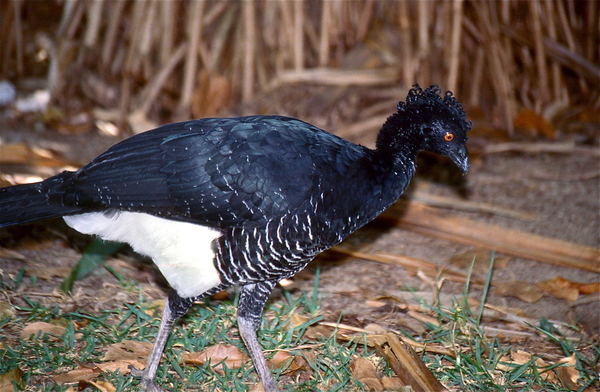
Habitat: Eastern Ecuador, Amazon Basin
Conservation Status: Endangered
The white-bellied curassow is easily recognized by its glossy black-blue feathers, contrasting with its white belly, sides, and tail tip. Growing up to 90 cm in length, it is one of the largest species of curassow. These birds inhabit the dense lowland rainforests of the Amazon Basin but are now endangered due to habitat loss and overhunting. Their meat is highly prized, further contributing to their population decline.
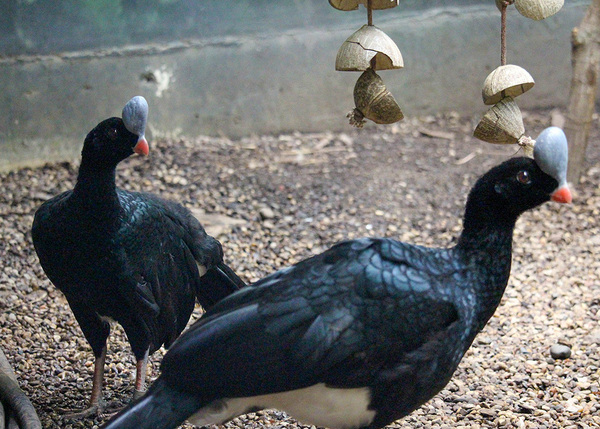
Habitat: Bolivia, Peru, Andean foothills
Conservation Status: Critically Endangered
The horned curassow, also known as the southern helmeted curassow, is a striking species with a unique, helmet-like structure on its forehead. This horned feature is an obliquely raised ellipsoid, giving the bird a highly distinctive look. They are typically found in the high jungles of Bolivia and Peru. Unfortunately, this species is critically endangered due to both habitat destruction and illegal hunting for their meat, which is considered a delicacy in some regions.
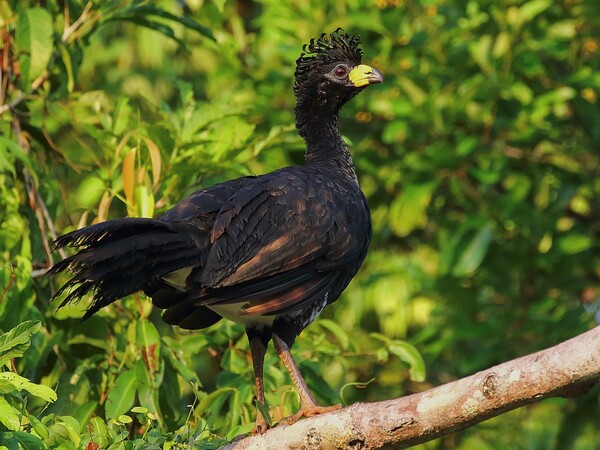
Habitat: Amazon Basin
Conservation Status: Vulnerable
The Amazonian curassow, also known as the wattled curassow, is commonly found in the lowland rainforests of the Amazon Basin, which stretches across countries like Brazil, Peru, Colombia, and Ecuador. They have a distinctive red wattle under their beak, which adds to their unique appearance. Although not as endangered as some of their relatives, they are still classified as vulnerable, primarily due to habitat fragmentation and hunting pressures.
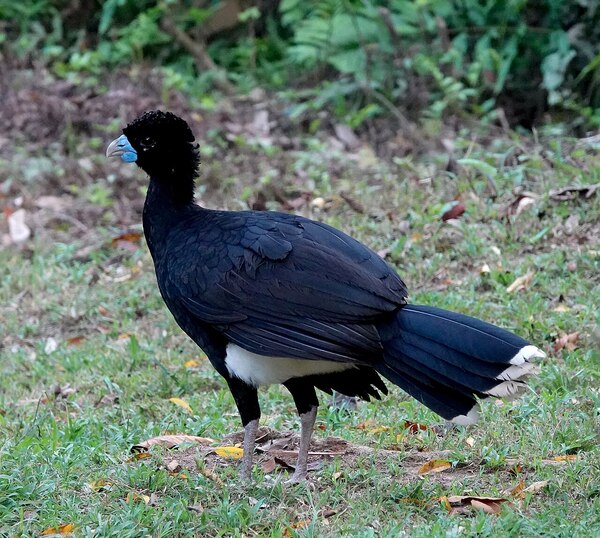
Habitat: Sierra Nevada, Colombia, and the Magdalena River lowlands
Conservation Status: Critically Endangered
The blue-billed curassow, also called paujil in some regions, is a critically endangered species native to Colombia. It is easily distinguished by its vibrant blue bill and black plumage. Unlike the curassows of the Amazon, this bird inhabits areas around the Sierra Nevada and the Magdalena River. Its population has drastically declined due to deforestation and hunting.
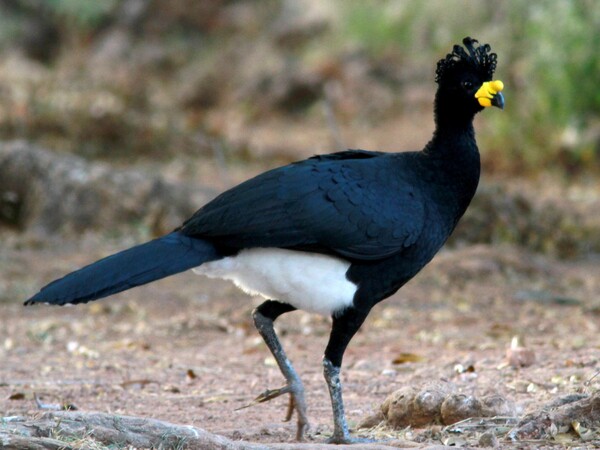
Habitat: Mexico to Colombia
Conservation Status: Near Threatened
The yellow-billed curassow is widely distributed, ranging from southern Mexico to northern Colombia. It has a striking yellow bill that stands out against its black body. While it is more adaptable than some of its Amazonian relatives, it still faces threats from deforestation and hunting. It is currently listed as near threatened, with conservation efforts being crucial to ensure its survival.
All of these curassow species share one thing in common: they are threatened by human activities. Deforestation, primarily driven by agriculture and logging, is reducing their habitat, while hunting for their meat further diminishes their numbers. Curassows play a critical role in their ecosystems as seed dispersers, and their decline could have serious repercussions for the tropical rainforests they inhabit.
Conservation efforts, including habitat protection and hunting regulations, are vital to saving these unique birds. Each species is a symbol of the diversity and fragility of the ecosystems in which they live.
By understanding and protecting these beautiful creatures, we help preserve not only the curassows but the Amazon rainforest and the biodiversity it supports.
animal tags: Curassows
We created this article in conjunction with AI technology, then made sure it was fact-checked and edited by a Animals Top editor.